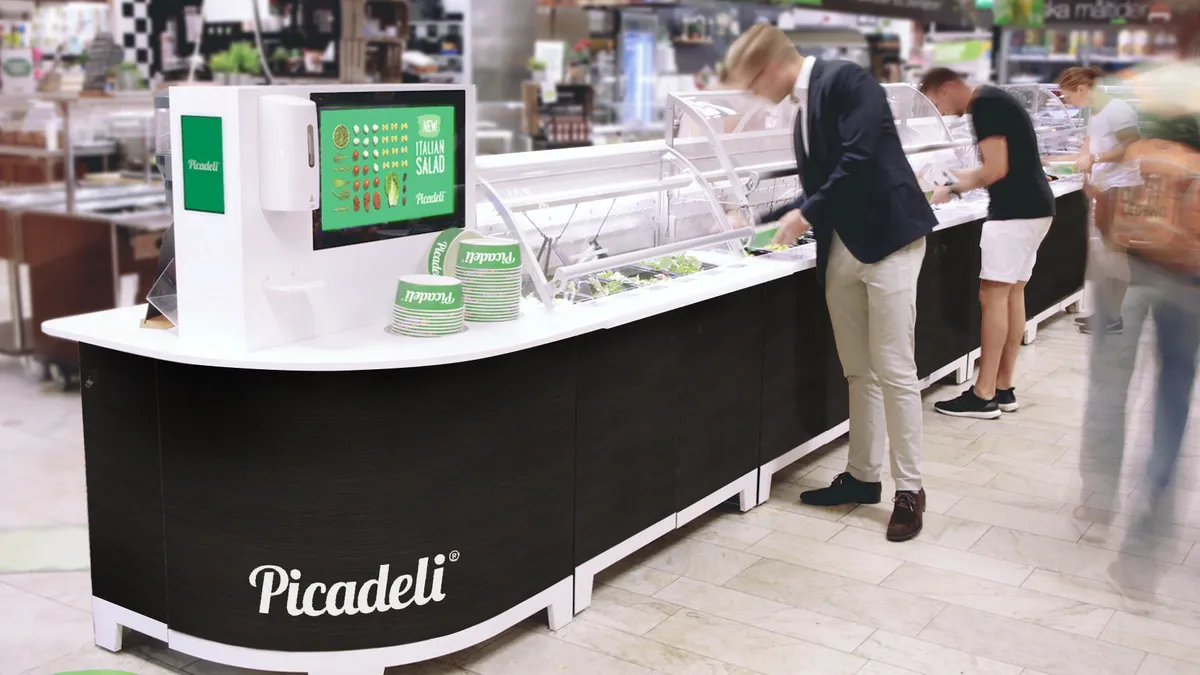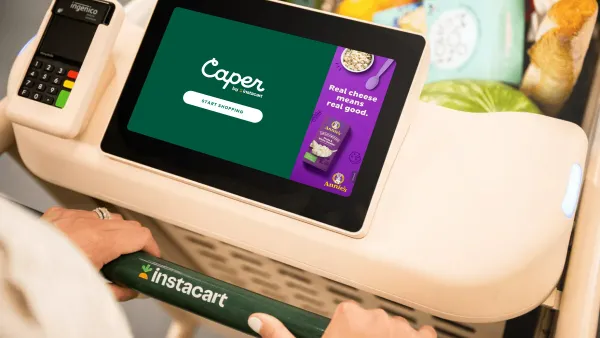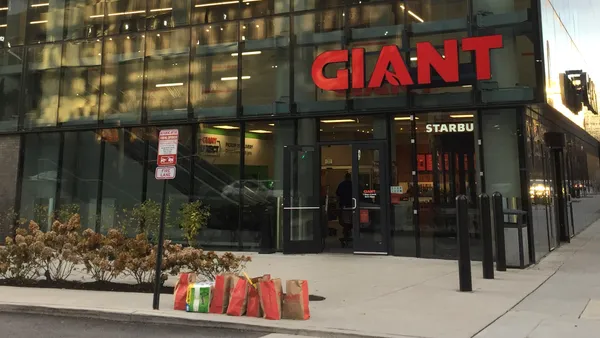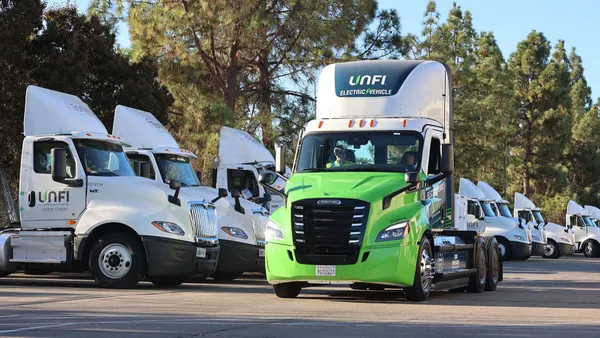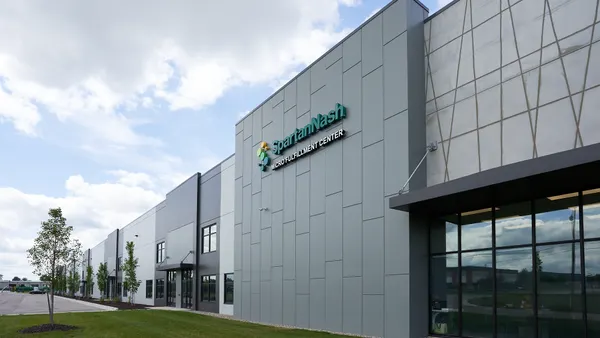A year after the coronavirus pandemic abruptly relegated supermarket salad bars to little more than spaces to display pre-packaged goods, a European company is betting that U.S. grocery shoppers will soon be eager to again help themselves to buffets brimming with ready-to-eat prepared foods.
Picadeli, which operates and supplies salad bars using artificial intelligence in more than 2,000 grocery stores in several European countries, is planning to bring its turnkey prepared-food concept to the United States during the second half of 2021, said Patrik Hellstrand, a veteran of the restaurant industry who is co-founder and CEO of Picadeli U.S., an independent entity formed to manage the Swedish food-tech company’s transatlantic expansion.
"I realized there's a big opportunity in the marketplace where there aren't healthy, affordable [fast] foods available in most places in America. And then it sort of became a passion project to figure out the solution for how can we bring better foods to everyone," said Hellstrand. "[Picadeli's approach] is better for the retailer than a fast-casual concept, because we are essentially offsetting the labor component of making a salad to the customer."
Picadeli U.S. is currently in discussions with several supermarket chains about installing its sensor-equipped salad bars in their stores, Hellstrand said. He wouldn't identify the retailers his company is considering partnering with, but said they range in size from about 100 stores to "thousands" of locations.
Picadeli began operations in 2009 in a single grocery store in Vänersborg, a city in western Sweden, and later added grocers in countries including Germany, France, Finland and Sweden. Picadeli's retail partners include Carrefour, Euro Garages, Franprix, Rewe, 7-Eleven, Coop and ICA. The company sold more than 45 million salads in 2019, according to Picadeli U.S.
The salad bar operator is owned by Greenfood, a Swedish food company that has been part of investment firm Nordic Capital since 2016.
Food and equipment from a single supplier
A key aspect of Picadeli’s business is that it controls the preparation and distribution of all the items in each salad bar. The company also designs and owns the salad bars, which it brands with its own name and rents to retailers.
"Our business is really selling food. So what we do really well is identify what works really well in salad bars," he said.
Retailers are not permitted to add their own selections and are responsible for the cost of each item they receive from Picadeli even if it does not sell out before its shelf life runs out.
Hellstrand said his company is working with food companies in the United States to develop a menu of options to include in salad bars it installs with partner retailers. A Picadeli salad bar can accommodate as many as 150 items, all chilled, but the bars in the United States will initially feature between 50 and 60 selections at a time, he said.
Unlike traditional salad bars, the internet-connected bars run by Picadeli record when store employees add items and generate alerts when food is at the end of its shelf life. In addition, each bar has sensors that ensure items are kept at the proper temperature and detect if the hood used to cover them is not closed after a consumer is finished taking food.
Picadeli ships food to retailers in disposable containers marked with QR codes that let store employees log each item as they add it to the salad bar and prompt a digital display to indicate what it is.
Tracking items to prevent waste
To cut down on shrink, Picadeli uses cloud-based servers to process data about how long it takes for items to sell out and uses that information in combination with other data to determine how often each one should be reordered and whether it is popular enough to continue offering at a given location — a process that improves over time as the system’s algorithms analyze a store’s consumption patterns, Hellstrand said.
Picadeli's software also takes factors like weather patterns and holidays into account to compute how often each item should be restocked, according to material provided by Picadeli U.S.
"If there's something that doesn't sell quickly, we just deliver it in smaller containers and make sure that we have a shelf life that almost always runs out so the waste goes down tremendously," Hellstrand said. "You don't have this idea of just emptying out the whole bar at the end of the [day], because everything is monitored on a SKU-level basis."
The company does not record which items people choose nor the amount of food each customer takes, according to Hellstrand.
Picadeli's salad bars, which are available in multiple lengths to accommodate various numbers of items, also feature built-in storage areas to keep foods refrigerated before they are put out for customers, Hellstrand said.
"We optimize for profitability, so we make sure that certain foods that work in certain stores are ordered at certain levels versus other stores," he said, adding that Picadeli has determined that its approach can help retailers reduce labor expenses related to maintaining a salad bar by up to half.
Picadeli's experience in Europe has shown that its salad bar concept can boost sales by between 15% and 100% compared with a traditional salad bar, according to Picadeli U.S. Each bar requires about 15 hours of labor per week to maintain and needs to sell about 200 pounds of food per week to be profitable.
Hellstrand said the company's business model sets it apart from automated salad-dispensing equipment like Sally, a robotic system that is now in use by several retailers in the United States. The machine is made by Chowbotics, which was acquired in February by DoorDash.
"We're not selling you a piece of hardware, we're selling you a complete food ecosystem, a retail concept that includes the hardware, the technology, the brand, the marketing, the engagement drivers," Hellstrand said.
Hellstrand also said Picadeli's approach allows it to meet heavier demand during peak times than an automated system that handles one order at a time.
Addressing uncertainty in self-service
In addition, each salad bar features ultraviolet lights to disinfect surfaces and is designed to suspend the tongs customers use to help themselves to food when they are not in use. Employees who manage the salad bars replace the utensils several times per day.
Each salad bar also includes a built-in hand sanitizer dispenser.
Picadeli is preparing to enter the U.S. market amid continued uncertainty among retailers about how to handle their self-service offerings in light of the safety concerns posed by the pandemic. While some grocers have brought salad bars back into limited operation, others have said they are considering cutting back on the amount of space they devote to stations that let people help themselves to prepared foods.
For grocers like Heinen's, which has introduced Sally to one of its stores, the pandemic has introduced an opportunity to refashion a supermarket staple that's pricey to operate and has seen declining sales for years. Retailers like Kroger are also testing out full-service salad stations that offer preset options and custom mixes.
Hellstrand said he is optimistic that consumers will be interested in salad bars as the pandemic recedes. "I think people understand that you really get sick from other people … and probably not from a salad bar. So I think it will come back."



